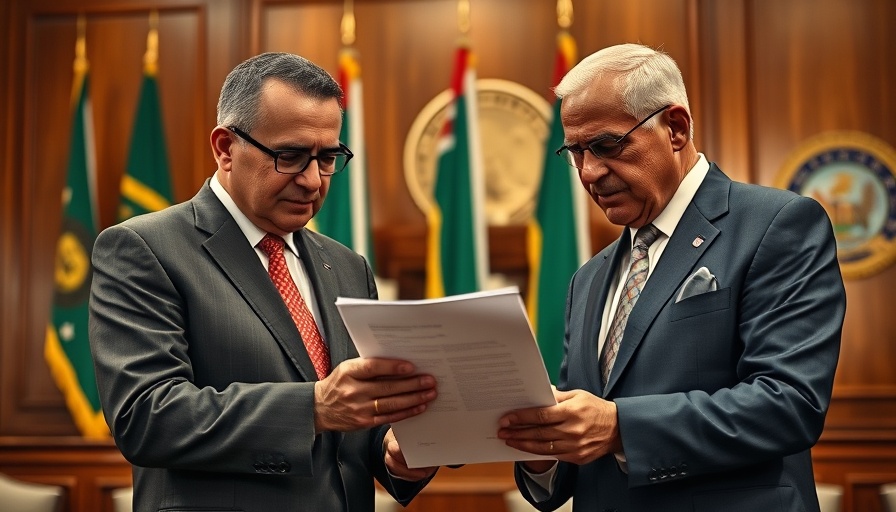
Unveiling Police Corruption: The Ad Hoc Committee's Mission
Next week, the Ad Hoc Committee assembled by the Parliament of South Africa will commence its first meeting to investigate alarming allegations made by the KwaZulu-Natal Police Commissioner, Lieutenant General Nhlanhla Mkhwanazi. These allegations suggest a troubling nexus between senior police officials and criminal syndicates that purportedly operate with impunity, undermining the integrity of South Africa’s law enforcement agencies. This investigation could herald a significant turning point in the ongoing battle against corruption in the police force.
The Implications of Mkhwanazi's Claims
Mkhwanazi’s assertions are not just individual complaints; they echo a broader narrative of state capture and corruption that has pervaded South African politics in recent years. As he highlighted during the recent International Nelson Mandela Day commemoration, the role of law enforcement is critical in ensuring public safety and maintaining social order. Yet, his allegations present a stark contrast to these expectations, indicating that some within the very institutions designed to protect citizens may be complicit in criminal activities.
The Role of Parliament and Public Trust
Parliamentary representative, Moloto Mothapo, has indicated that the findings from this committee may or may not be forwarded to the broader Commission of Inquiry into law enforcement agencies. This raises questions about transparency and accountability in the political sphere. How will the public perceive the resolution of these allegations? With increasing demand for accountability, citizens are watching closely to see if the government will take substantive action to probe these claims further.
Historical Context and Background
The dynamics of police corruption in South Africa have deep historical roots, exacerbated by systemic issues including poverty, unemployment, and inadequate social services. Allegations of collusion between police and criminal gangs are not new, but they have reached a peak with the recent revelations from various public figures and whistleblowers. Understanding these historical patterns underscores the importance of the current investigation and the potential for genuine reform.
Future Predictions: Where Do We Go From Here?
The success or failure of the Ad Hoc Committee could very well dictate the future landscape of governance and public safety in South Africa. If the committee uncovers substantial evidence of wrongdoing, it might prompt a wave of reform across law enforcement agencies, provoking a much-needed dialogue on police reform and accountability measures. Conversely, a lack of findings or accountability could fuel further disillusionment among the electorate, particularly in the shadow of national elections.
Relevance to Current Events
As South Africa prepares for national elections, issues surrounding trust in governance and public service are more prevalent than ever. With high-profile corruption scandals continually surfacing, the outcome of the Mkhwanazi investigation are pivotal in shaping public sentiment toward key players such as the African National Congress (ANC) and other political entities like the Economic Freedom Fighters (EFF) and the Democratic Alliance (DA). Citizens will need to scrutinize how these parties address the critical issue of police corruption as they head to the polls.
Professional Implications: Accountability and Ethics
The implications for professionals within law enforcement, public policy, and even broader governance contexts could be profound. A commitment to ethical conduct and accountability is vital for the South African Police Service to regain public trust. Mkhwanazi’s bravery in speaking out needs to resonate across all sectors, fostering a culture where upholding integrity and denouncing corruption are paramount.
As the committee gears up for its first meeting, South Africa stands on an urgent precipice. This investigation may ultimately offer a crucial opportunity for authorities to re-examine their roles and commitments in safeguarding democratic ideals and ensuring the rule of law prevails.
Call to Action
Stay informed on the findings of this critical investigation and consider the broader implications of police corruption on everyday South Africans. Engage in discussions regarding accountability measures and the future of law enforcement in your community.
 Add Row
Add Row  Add
Add 




Write A Comment